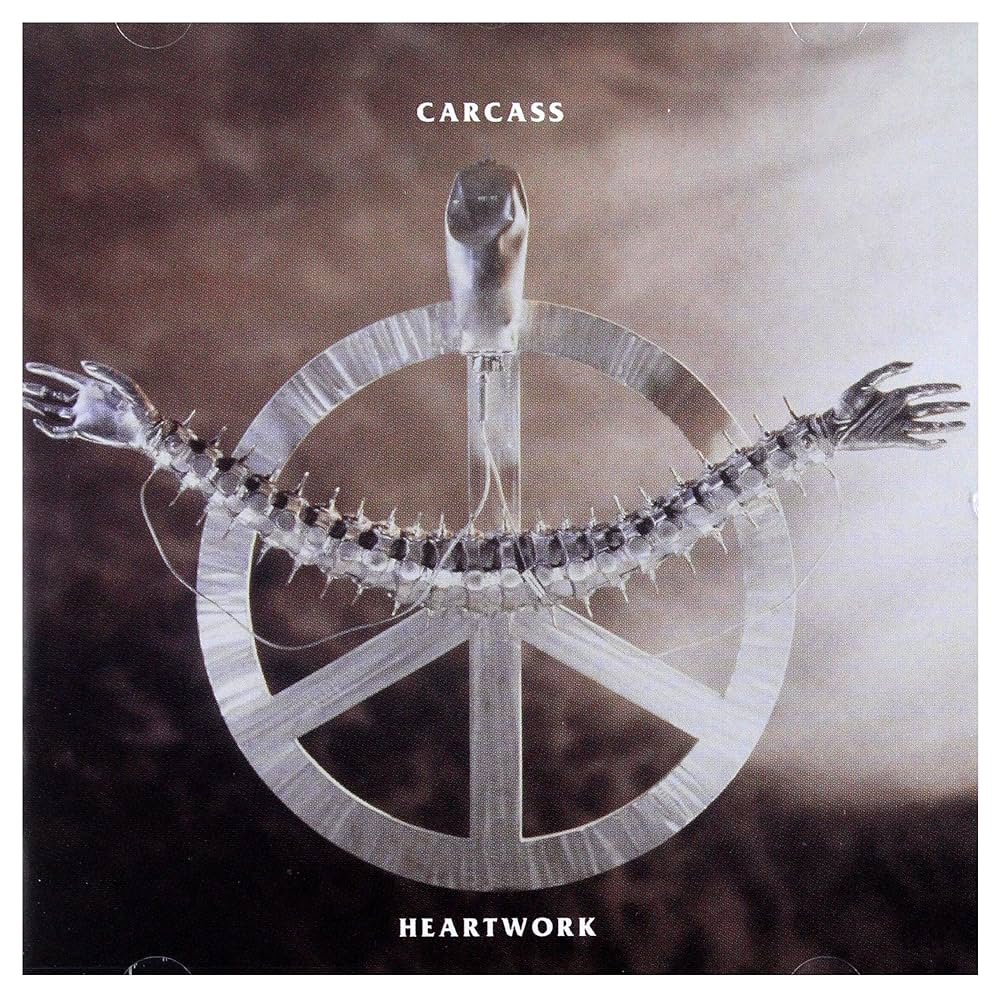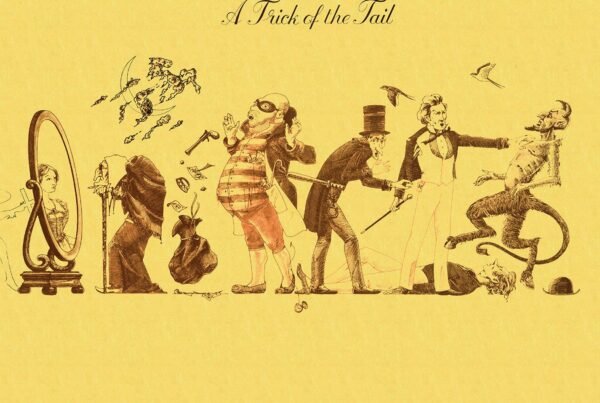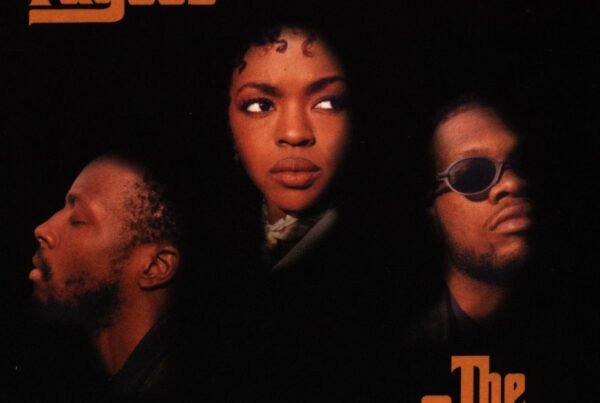Release date: October 18, 1993 | Earache Records | Facebook | Instagram | Twitter
Making light work of Heartwork would be incredibly unwise; it’s one of the most influential records to come from the UK metal scene, and stands the test of time quite resolutely. Carcass haven’t become a legendary act for nothing – their unholy trinity of brutality, technicality, and melodicism is still immediately recognizable from miles away. Thus, celebrating the 30th anniversary of one of their landmark recording seems to be the no-est of brainers.
Joe McKenna
Heartwork upholds something of a legendary status in numerous extreme metal circles nowadays for a variety of reasons. Not only does the album mark a pinnacle turning point for Liverpool’s alternative fab four, one which saw Carcass fully commit to the death metal technicality that was seeping into their sound on their previous album Necroticism, but it also revealed to the metal community a band that weren’t just a mere fragment of a then evolving extreme metal scene; rather, they were the ones who bore a torch for extreme metal going forwards. Gone with the surgical putridity and simplistic goregrind format that dominated their first two releases for a sparser musical palate of complex melodies, gut wrenching riffs, and extended song structures, Carcass were carving a new chapter of their history.
On May 18th 1993, when Carcass crammed themselves into the notably small, now defunct Studio 3 of Parr Street Studios in Liverpool, many at the time were most probably unaware of endless hours the artists spent with engineer Colin Richardson trying to conjure the right sound and recording strategies through Michael Amott and Bill Steer’s fresh new riffs (that leaned more towards Amott’s Swedish roots with Carnage), Ken Owen’s furious blast beats, and Jeff Walker’s nasty bass tone and even nastier vocals. Being a late admirer of this record, I probably wasn’t able to fully grasp how radical a change this was from the band’s grindcore roots. Perhaps if I were to compare this to similar artists who took a gamble on challenging the norms of their sound for something radical or more mainstream then perhaps I’d have had a similar response to some Carcass fans back then, although I’m not one for discrediting a band for trying something new especially when such a radical departure from a particular sound for another can result in something newly innovative and unique. That being said, even with the initial lukewarm reception and accusations of selling out, soon enough songs like “This Mortal Coil”, “Carnal Forge”, and “Death Certificate” (to name a few) became a staple of melodic complexity and technicality that we death metal fans certainly take for granted today. Alike what was also coexisting in Gothenburg (namely bands like At the Gates, In Flames, and Dark Tranquility), Carcass seemingly aimed to transport this Swedish melodeath sound across various global metal territories, becoming a catalyst for what is now one of metal’s most diverse and popular subgenres.
Yet what still intrigues me the most about this record wasn’t just how well-rounded it is musically, nor was it the fact that this album established a core foundation for subsequent melodic death metal bands to absorb a great deal of inspiration from; more crucially, it was how Heartwork was released during a period where the metal music industry and corresponding scene was experiencing a great deal of change and development. Soon after the release of Heartwork, Carcass would go onto release their last album on Earcache Records, Swansong, with the departure of Amott and later Owen, the band then signed a deal with Columbia Records, Carcass’ first time signing with a major label before soon after disbanding for an extended period of time. However, the seeds were planted – major labels weren’t previously seen as the way forward for most death metal bands, yet it was becoming more common, and more recognition meant that many underground bands were given the opportunity to reach a wider audience more easily. As tape trading networks were being established on a global scale and more complex musical characteristics were being applied by artists, a new era for extreme and fringe music genres had been ushered in. Heartwork was a masterclass in and of itself and me like many others who grew up with plenty of extreme metal music to choose from, Heartwork will forever be seen as an essential gateway album that encouraged many to explore death metal’s inner depths for closely.
Hanna Ott
Carcass is one of those bands that never ceases to amaze and delight me. I got into them very near the beginning of my foray into metal – I remember the first time I heard Surgical Steel so vividly, ten years ago, just after it came out. I was instantly blown away, and my adoration for that album and the band that made it has only deepened with time. There are many reasons Carcass in particular scratch my death metal itch – the diversity of their discography, the ferocity of their riffing, their incredible duelling guitar solos, the distinctiveness of their sound, their dry British wit, their trueness to self. It was also refreshing to discover that, despite their obtusely gory lyrics and horrifically graphic early album covers, they were once a vegan band. As someone who rejects animal products myself, that was cool to see – that a band so brutal could be so sensitive to a topic that is important to me, too (the other obvious example here being the incredible Cattle Decapitation, a recent obsession of mine).
I’ve reviewed Carcass’ two most recent releases with my pal David, whose experience with Heartwork you can read about above/below, and talked at length about the band’s origins and discography in the Carcass EINthology – and yet there’s still more to say. Heartwork is interesting to me, because it was never my favourite Carcass release; Surgical Steel has always been number one for me. Heartwork is the famous album though, and for good reason – it’s unique in its field, and it marked an important turning point in Carcass’ career, musically speaking. Carcass’ previous album, Necroticism: Descanting the Insalubrious, was the beginning of a more melodic and defined sound for the band, considering their first two releases were chaotic and grindy, but Heartwork took that to a whole new level. The songs are forceful and riff-laden, with spectacular trading solos between Bill Steer and Michael Amott, but follow lean, classic rock structures. This became a sort of blueprint for all of Carcass’ future releases, and so Heartwork can be seen as the first example of the definitive Carcass style. The degree of sophistication the band achieved on this release is what places it in the same league as the other classic metal greats – think Death’s Symbolic, Metallica’s Master of Puppets, and Opeth’s Blackwater Park. Since Heartwork’s release, Carcass have never quite managed to hit the nail of their sound on the head like that again – it embodies what I think most people think of when they hear Carcass mentioned. It’s not my favourite of their releases, but I can’t deny that it’s the most definitive release in their discography.
Interestingly, Heartwork was initially very poorly received, something Carcass have talked quite a lot about. They mention that it was met with indifference, fans were accusing them of having sold out, told them they were happy to see them play but that the new record sucked – classic stuff. I wonder now whether some of the fans were just intimidated – Carcass were no longer somewhat aimlessly brutal, but had sharpened their gory narratives down to a razor-sharp edge. From the first few bars of “Buried Dreams”, it was clear that Carcass had changed forever, and that they were resolutely confident in this move. Everything about this song, and the album it opens, is chillingly unapologetic. I truly believe that, when Carcass were writing these songs, they knew how good they were, and they didn’t give a flying fuck if people weren’t on board. There are some albums that are just objectively great, albums I can understand someone not liking, but can’t understand someone not seeing the genius of – Heartwork is one of those albums.
Even 30 years on, Heartwork still delivers every single time – it sounds clearer and heavier not just than the band’s earlier albums, but than the majority of metal releases. I truly believe that the sound of this album served as a blueprint for innumerable other death metal records, and I certainly hold it in high esteem for its production. Aside from that, the songwriting is also spectacular. It contains all the ferocity you’d expect from a death metal release, without the janky section changes and meandering song structures this genre (especially in its early form) was infamous for. There’s nothing bloated about Heartwork, and it’s jam-packed with bangers (some of my favourites being “Arbeit Macht Fleisch”, “Blind Bleeding the Blind”, and “No Love Lost”). Carcass took this stripped-back approach to an extreme on 2013’s ‘comeback album’ Surgical Steel, paring the structures back further until the songs averaged at just over four minutes each, yet still each contained only stellar riffs. In many ways, 2022’s Torn Arteries was a return to Heartwork, compositionally speaking; melodic, vicious, catchy, concise, and expressive all at once. Yet Heartwork’s quality and flow as an album are unparalleled by any other Carcass release. Although Surgical Steel is and will always remain my favourite offering in Carcass’ discography, I have to agree that objectively, Heartwork was the pinnacle, and a definite turning point in their career.
I don’t specifically remember the first time I heard this album, and while that’s a shame, it also doesn’t really matter; because Heartwork still feels fresh every time I hear it. I never tire of it, I always enjoy it, and it always draws me in. It’s just a spectacular death metal album, and one that I firmly believe every self-respecting fan of the genre should spin at least once. Once they’ve done that, they’ll certainly want to hear it again and again. Happy birthday, Heartwork; you certainly make my heart want to keep working.
David Rodriguez
Goddamn, this album’s good. Though I wouldn’t hear it until it was at least 20 years old, it’s been something I go back to somewhat often, along with other Carcass albums. There’s a lot to cover with an album – and band – like this, and while I’m purposefully keeping this pretty short (yeah, weird), I’ll try to cover the basics.
For those that don’t know, it’s quite possible that without Carcass, Arch Enemy wouldn’t be the band they were or are now. Even if you don’t like Arch Enemy, it’s an incredible pedigree to explore and it all comes down to Michael Amott, chief guitarist and writer for Arch Enemy, just as he was for Heartwork with Carcass along with the legend Bill Steer (as well as some writing and guitar work on their previous album, Necroticism – Descanting the Insalubrious). After all, Heartwork is the album that pioneered the melodic death metal sound that Arch Enemy took and ran with, making it more popular and approachable to fans around the world. Respect.
And really, even without knowing all that, it’s not hard to figure out – you tell me what the main melody to “Embodiment” sounds like. Those that know, know, and will probably say early Arch Enemy. But it’s a good song! Quite indicative of the turns and dips that Carcass were all about making at the time. Sure, their steer (ha) away from the murderous medicine of grindcore certainly disappointed some fans, but those that are so attuned to a great, heavy melody, Heartwork is practically a holy text.
Motherfucker, nearly every song’s got at least one (1) riff that’s liable to burrow into your holes and lay eggs. One of my favorites is “No Love Lost” which has this ascending lilt on the guitars, a sort-of Metallica-esque power and affectation to them (this is still kind of a compliment since that band was fresh off their self-titled ‘black album’ days and you are fucking tripping if you don’t think that album has some bangers on it).
Or what about “Carnal Forge”, which has this rolling, thrashy intro with a slight gallop to the melody as Jeff Walker snarls throughout the song about mass death and genocide with grave and surgical detail. Seriously, I’m pretty sure some of the words that Walker uses in his lyrics can only be found in medical journals from the ‘60s. Dude’s vocabulary is as advanced as the maladies he sings about.
Even surface level listening while doing other things, the songs steal your attention away and force you to pay attention and nod your head. The main riff of the title track comes out of nowhere and is a good precursor to Horrendous’ “Nepenthe” which is one of my favorite death metal songs of all time. So much of modern metal can be traced back to Heartwork in terms of style, writing, or execution. If nothing else, it garners undying respect for that alone.
I’ll wrap up here, but I’ll sum up the rest by saying that if you have heard Carcass’ amazing ‘comeback’ albums of the new millennium and not this, you’re fucking up. It all started here and some fans still hold Heartwork above Surgical Steel and Torn Arteries. You’ll get no argument from me – it’s a stellar album with virtually no weak points and the honor of forging an entire subgenre’s sound in 10 tracks. A very, very low number of bands in the world can claim to be anything close to that caliber of legends, let alone keeping up the same unreal quality decades later. Happy 30th, Heartwork.







2 Comments